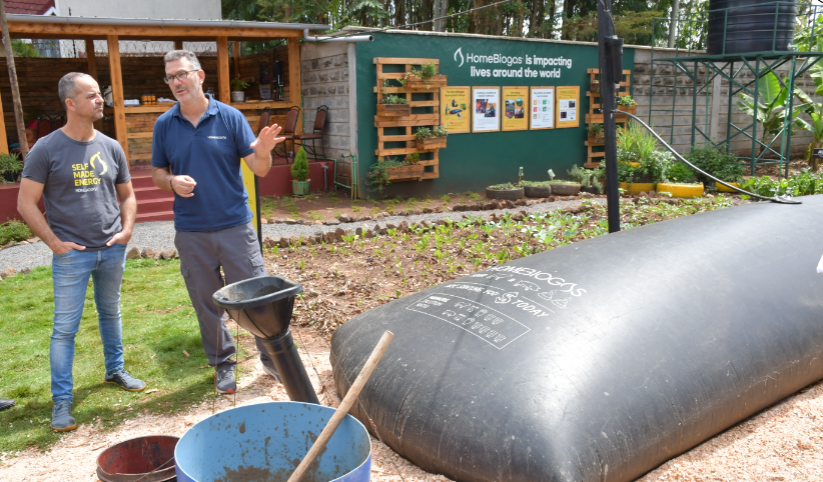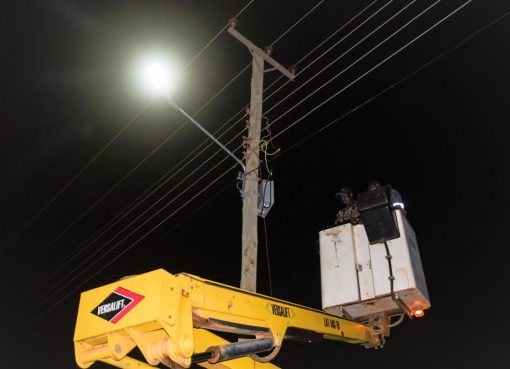Smallholder farmers in Kiambu are benefitting from training and installation of HomeBiogas a system that turns organic waste into biogas for cooking and natural/organic fertilizer.
HomeBiogas, an Israel-based start-up company with its headquarters in Tinganga, Kiambu County has been training and installing biogas systems in homes all around the county, empowering them to live a healthier, more efficient, self-resilient and sustainable life.
Speaking to KNA at their demo farm in Tinganga, HomeBiogas founder and Chief Executive Oshik Efrati said the driving force behind them is the goal to develop a product that benefits the environment and helps people transform their lives and improve their health by shifting to clean renewable energy.
“Not only has HomeBiogas been found to significantly reduce methane gas emissions, it also reduces over six tons of carbon dioxide per year for each system,” said Efrati.
He added that their focus is on smallholder dairy farmers and pig farmers who own one to three cows or pigs mostly in the central regions of the country, the system not only produces energy but also fertilizer for their farms
“In only one year since we opened a hub in Kenya, we have installed over 1500 biodigesters to different homes in Meru, Kiambu, Kirinyaga, Nyeri and Murang’a and we expect to do more before the year ends,” he said.
The Company CEO added that plans were underway to partner with the county and national government through Kenya Forest Services (KFS) saying encouraging the use of biogas instead of wood or charcoal would save trees.
“Biogas is renewable energy unlike LPG and natural gas, which are fossil fuels, cooking with biogas saves about 6 tons of carbon emissions a year. Biogas has no smell, no smoke, no danger, and no cost,” he said.
According to Jenifer Wanjiru who had a biodigester installed in her home in August 2022, the system has brought many practical and economic benefits to her family.
“Firewood used to be an expensive and time-consuming activity. I used to spend about Sh6,000 on firewood and LPG gas every month, with home biogas I now get over 5 hours of cooking absolutely free, and the money now goes to school fees and feeding,” said Wanjiru.
She added that she uses the organic fertilizer she collects on her biodigester every day on her farm and also sells the extra to other farmers
“I collect about 100 liters of organic fertilizer from my HomeBiogas system every day. I am not therefore affected by the continued rise of the prices of chemical fertilizer because I have enough for my farm and even for sale,” Wanjiru said.
According to the World Bank, the UN and FAO reports, between 2.4 and 3.5 billion people worldwide do not have access to clean cooking energy and technology. These people use open fires and rely on wood-based fuel, including wood and charcoal for cooking.
By Grace Naishoo





